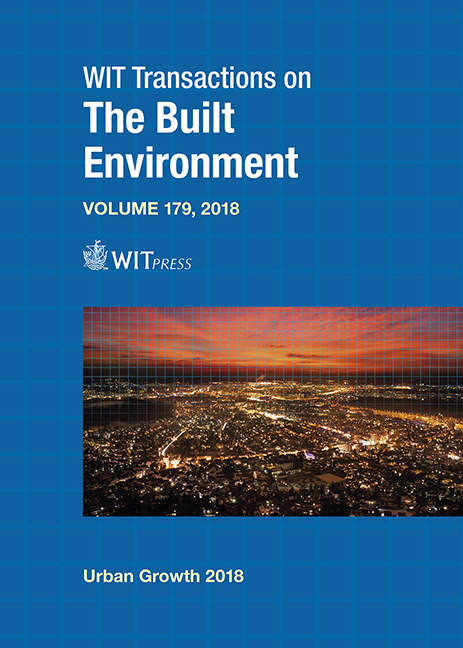URBAN GROWTH AND ENERGY SUPPLY IN AFRICAN CITIES: THE CASE OF ETHIOPIA
Price
Free (open access)
Transaction
Volume
179
Pages
11
Page Range
159 - 169
Published
2018
Size
1,021 kb
Paper DOI
10.2495/UG180151
Copyright
WIT Press
Author(s)
ANDREA HOELTL, ROMAN BRANDTWEINER, TANIA BERGER, ROMANA BATES
Abstract
Ethiopia is rapidly urbanising. Similar to other urban areas in developing countries, major issues in Ethiopia include a high level of income inequality, lack of formal employment opportunities and deeply rooted poverty, tenure insecurity, poor infrastructure, and limited access to electricity and energy. Frequently settlers end up in impoverished urban squatters and slums which do not offer them even the most basic infrastructure and hence lack to provide them with the perspectives they came for. Onward migration to farer off destinations such as the EU member states thus often remains as sole option for those caught in such urban poverty traps. Although the issue of informal urban settlements is not new to the context of Ethiopian cities, the current rapid urban growth rates are exposing urban rental markets as well as infrastructure and energy supply to considerable pressure. The paper investigates the respective situation in Ethiopia and demonstrates some best practice examples. In the context of Ethiopian cities, energy production and distribution have been highly centralised under state entities and the scope for exploring local/business driven and decentralised systems has been limited. Transitions can be implemented towards sustainability and the United Nations’ Sustainable Development Goals if collective identification and structuring of issues along with collective envisioning of future is provoked or facilitated.
Keywords
Ethiopia, informal settlements, energy supply, Paris Agreement, renewable energy, Intended Nationally Determined Contribution, Sustainable Development Goals, decentralised energy solutions





